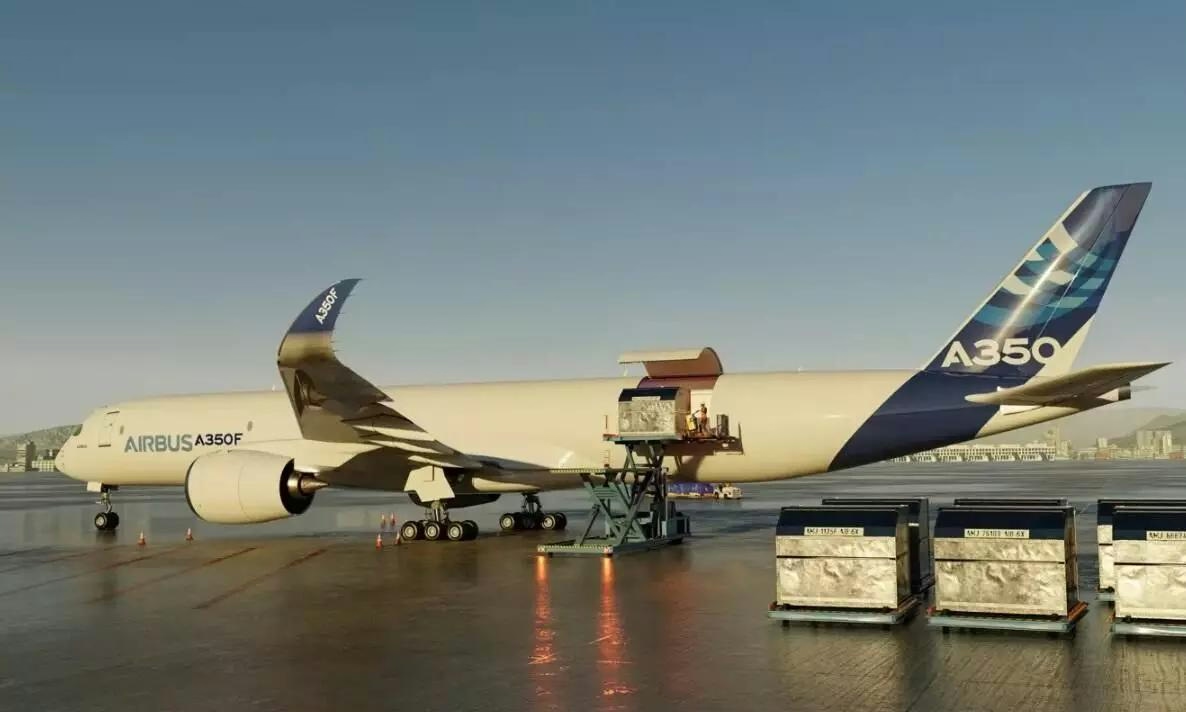أيروجيني — مساعدك الذكي للطيران.
الرائج الآن
Categories
Why Boeing Has Not Developed a 787 Freighter While Airbus Built the A350F

Why Boeing Has Not Developed a 787 Freighter While Airbus Built the A350F
The Boeing 787 Dreamliner and the Airbus A350 stand as exemplars of contemporary widebody aircraft design, both incorporating advanced carbon-composite materials and numerous innovations aimed at enhancing fuel efficiency, safety, and passenger comfort. While each family offers multiple passenger variants, only Airbus has introduced a dedicated next-generation freighter model: the A350F. Since its launch in 2021, the A350F has secured 65 orders, quickly establishing itself as the most advanced freighter currently available.
Boeing’s Freighter Strategy and the 787 Dreamliner
Despite Boeing’s dominant position in the commercial freighter market, the company has yet to develop a cargo version of the 787. The Dreamliner family includes three variants—the 787-8, 787-9, and 787-10—each designed to serve different market segments. The 787-8, the original and smallest model, features a lower maximum takeoff weight (MTOW) compared to its successors. The 787-9 offers a significant increase in MTOW and range, while the 787-10, a stretched version, provides the highest capacity but the shortest range within the family. Despite this versatility, none of these variants have been adapted for dedicated cargo operations.
Several factors contribute to Boeing’s decision to forgo a 787 freighter. The company continues to produce the 767-300F, a reliable and widely used freighter based on the 767-300ER. The 767-300F remains popular among cargo carriers such as FedEx Express and UPS Airlines, with nearly 300 units sold and approximately 27 still on order. Its proven reliability, lower acquisition cost, and the fact that development expenses have long been amortized make it an attractive, low-risk option for operators requiring a smaller widebody freighter.
Financial and Operational Challenges Influencing Boeing’s Approach
Boeing’s strategic choices are also shaped by broader financial and operational challenges. The manufacturer has faced persistent production difficulties and significant losses in both its 737 and 787 programs. With net debt exceeding $45 billion, Boeing’s financial flexibility is constrained. Although the company enjoys a high market valuation—trading at 22 to 25 times forward free cash flow—there is concern that any shortfall in aircraft deliveries or a decline in free cash flow, potentially to around $3 billion, could prompt a market correction. These pressures have likely contributed to Boeing’s reluctance to invest in the development of a new 787 freighter variant.
Meanwhile, Airbus has capitalized on this opportunity by launching the A350F, potentially altering market dynamics and challenging Boeing’s traditional dominance in the freighter segment. While Boeing continues to secure major orders for its passenger aircraft, including recent deals with Turkish Airlines for 787 Dreamliners and 737 MAX jets, the absence of a next-generation 787 freighter remains a notable gap in its product portfolio—especially as the A350F gains traction among cargo operators.
Boeing’s decision not to pursue a 787 freighter thus reflects a combination of ongoing financial constraints, reliance on the established 767-300F, and the risks associated with launching a new cargo aircraft amid production and market uncertainties. As Airbus advances with the A350F, the competitive landscape for widebody freighters is set to evolve further.

Emirates Unveils Cabin Design for New Boeing 777X

Eighteen Years On, the Airbus A380 Remains Central to a $34 Billion Airline

How a boom in luxury airline seats is slowing down jet deliveries

Navitaire Outage Attributed to Planned Maintenance

Airbus Plans Record Delivery of 870 Aircraft in 2026

DigiYatra Debuts Outside Aviation at India AI Impact Summit

Vietnam Orders Strengthen Boeing’s Commercial Outlook

Airbus Signals Uncertainty Over Future A400M Orders

JobsOhio Awards $2 Million Grant to Hartzell Propeller for Innovation Center

Collins Aerospace Tests Sidekick Autonomy Software on YFQ-42A for U.S. Air Force CCA Program
